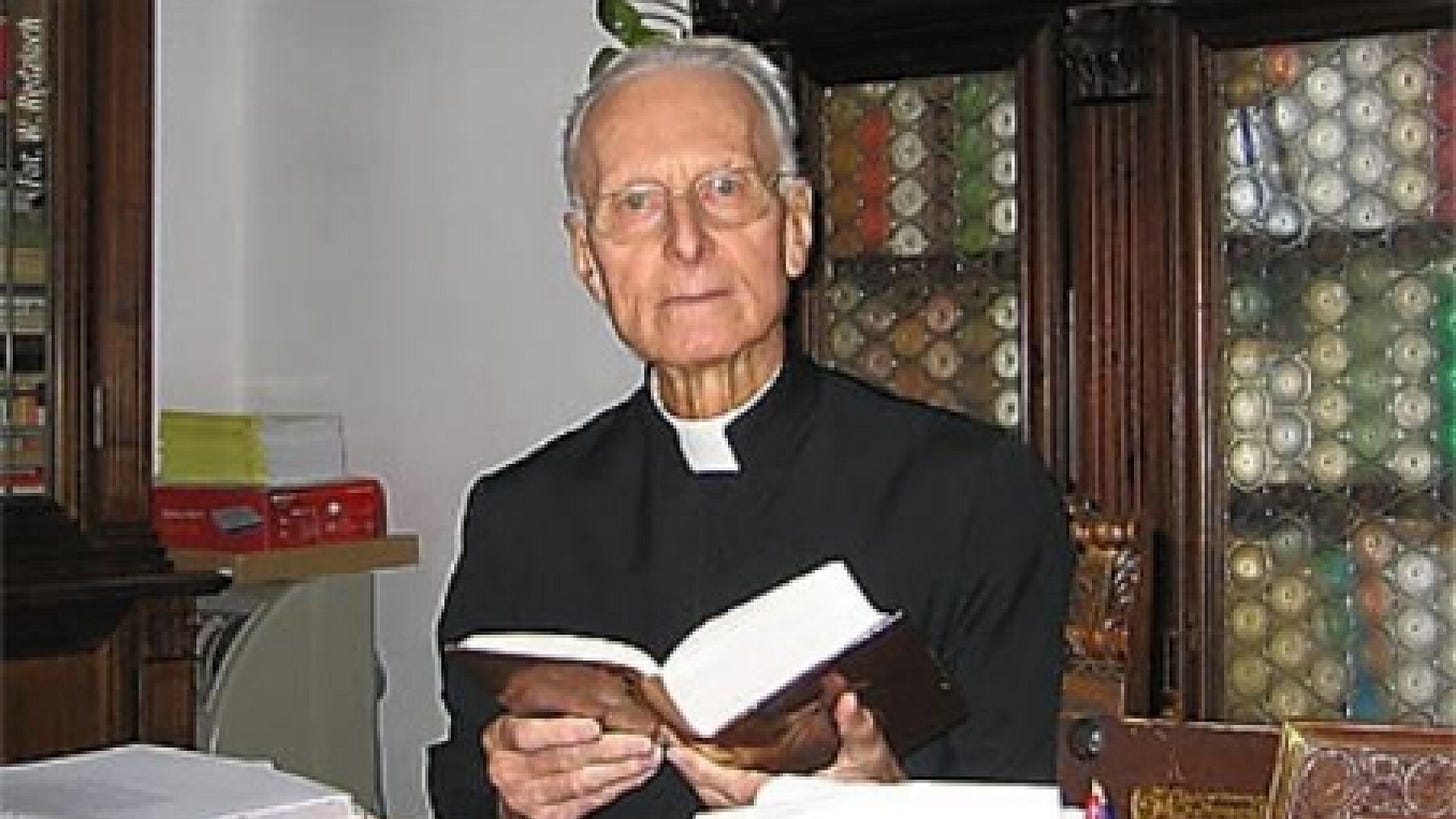Today, February 10, 2025, marks the centenary of the birth of Monsignor Brunero Gherardini, who passed away in 2017. His legacy endures within the Catholic Church as a fierce critic of the Second Vatican Council and as a distinguished proponent of a rigorous theology that withstood the pressures and fancies of a fragile modernity. As an exponent of the Roman School, under the mentorship of his master, the philosopher and theologian Cornelio Fabro, Gherardini represented a voice of doctrinal continuity during a time of tumultuous change.
Critique of the Second Vatican Council
Monsignor Gherardini is primarily known for his critique of the Second Vatican Council, which he saw as a break from the Church's centuries-old theological tradition. His analysis of conciliar innovations, particularly in documents such as "Sacrosanctum Concilium," "Dignitatis Humanae," and "Lumen Gentium," highlighted what he perceived as deviations from traditional Catholic doctrine. Gherardini argued that the Council, in its attempt to be pastoral, had introduced ambiguities and confusions that undermined dogmatic clarity and magisterial continuity.
He advocated for a "hermeneutic of continuity," a reading strategy that seeks to interpret conciliar documents in light of tradition, attempting to mend what he saw as a rift between pre- and post-Council Church teaching. This stance was articulated in works like "Concilio ecumenico Vaticano II. Un discorso da fare," where he presented his critiques with a depth and seriousness rarely seen in contemporary theology.
The Role of Cornelio Fabro
Gherardini's theology cannot be fully understood without acknowledging the influence of his mentor, Cornelio Fabro. Fabro, a renowned Thomist, instilled in Gherardini a love for the philosophy and theology of Saint Thomas Aquinas, emphasizing the importance of metaphysics and objective truth. This teaching led Gherardini to resist what he perceived as the relativistic and subjectivist trends in post-conciliar theology.
Under Fabro's guidance, Gherardini developed a theological approach that was not only critical but also constructive, aiming to return Catholic theology to its patristic and medieval roots. Fabro's defense of "participated truth," which sees man as participating in divine truth, found a steadfast disciple in Gherardini, who sought to apply this principle in a world increasingly inclined to relativize truth.
Resistance to Fragile Modernity
Gherardini viewed modernity as a period of "fragility," characterized by moral and intellectual relativism threatening the stability of faith and reason. His theology actively resisted this climate, striving to affirm the timelessness of Catholic truth. He criticized ecumenical trends that, in his view, sacrificed doctrinal clarity for superficial unity and lamented the loss of the sense of the sacred that he saw emerging in post-conciliar liturgy.
Conclusion
Monsignor Brunero Gherardini remains an emblematic figure in contemporary theological thought, a guardian of tradition in an era of radical changes. His critique of the Second Vatican Council, his dedication to Thomist philosophy under Fabro's influence, and his resistance to fragile modernity make him a significant figure for those seeking a theology that is both faithful to tradition and capable of engaging with the present. Celebrating his centenary, we honor a theologian who lived and taught with the integrity of one who deeply believed that truth cannot be bent to the whims of the times.




